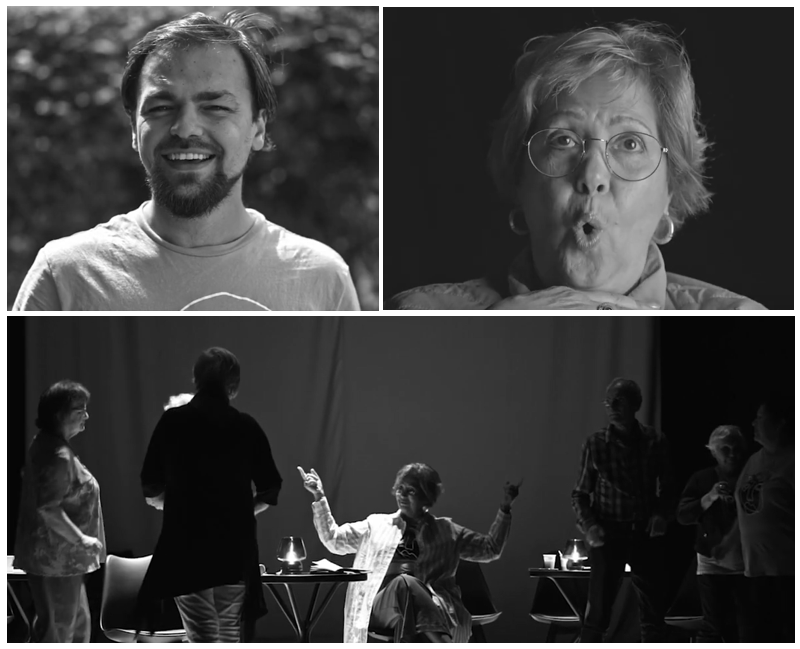The last session of the “Cyle of Virtual Exchange Cycle” took place on January 16, 2024, as part of the “Culture on Prescription in Europe” project. The event organiszed by GEAC aimed to share Romania’s experience regarding social and cultural prescription, with an emphasis on the experience from the “TheaterTheatre Therapy” workshop. The event was attended by 25 people from 10 countries, representatives of the project partners and other actors interested in the subject.
Juliana Louceiro from SHINE made an overview of the COPE Culture on Prescription in Europe project, while Iuliana Iliescu from GEAC made a presentation of the situation of the older people, loneliness and social isolation, as well as the Social Pprescribing in Romania.
Victor Tapeanu, artist, producer and co-founder of the Cuibul Artiștilor, talked, as a facilitator, about his and participants experience in the “Theatre Therapy” workshop , as part of the “Culture on Prescription in Europe” project. We have learned from Victor that the seniors enjoyed themselves “like children”, and had a beautiful and beneficial experience that formed a community that remained active even after the course was completed. The participants had the opportunity to discover themselves, to be more open both in relation to other people and to themselves. The Romanian actor mentioned at the end of his presentation that “for a healthy community it is necessary to create a context of collaboration among seniors and young people”, this aspect also coming from his own experience as a young professional.
The event also benefitted from the participation of representatives of two organiszations, partners of GEAC, who shared their experience of everyday work for the benefit of older peoplethe elderly.
Thus, Iuliana Rada, Program Manager at The Margareta of Romania Royal Foundation (FRMR) presented the foundation’s activity. With 33 years of experience in the social field, FRMR is one of the few non-governmental Romanian organiszations that run social programmess dedicated to older adults, with the support of volunteers, in an intergenerational approach. A project with tradition, which Iuliana mentioned, is Telefonul Varstnicului – the first free phone line dedicated to older people, where they can find out answers to various questions, receive practical information or simply have the opportunity to have a chat. The Generations Community Center is another project mentioned by our guest. GCC transforms after-school day centerscentres into micro-communities involving children, youth and the elderly to solve social problems.
The other partner organiszation, the CARP Omenia Association, was represented by Andreea Ștefan, a social worker, who presented the opportunities and activities that Omenia Day Center provides to pensioners living in District 5 of Bucharest, in order to improve their well-being: socialiszation activities, painting, crocheting, literary activities, English and IT courses, trips and participation in various festivals, etc.
In conclusion, Romania is still at the beginning in terms of social and cultural prescription, so we need debates with decision-makers and all stakeholdersactors in society to develop public policies that address separately to these issues and become national practice.

